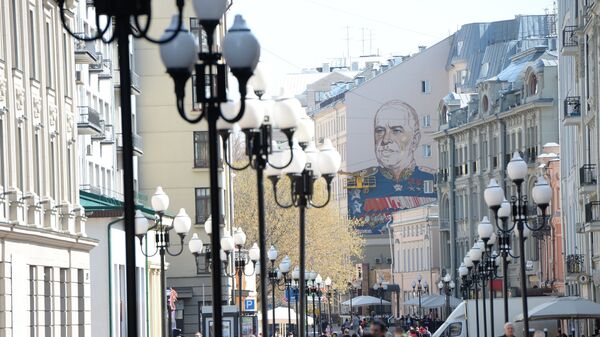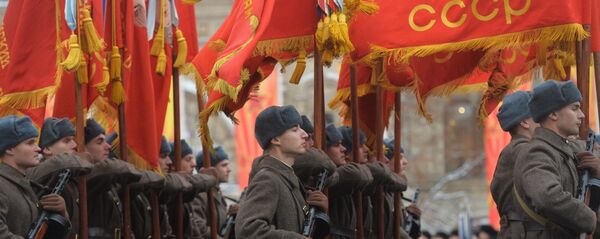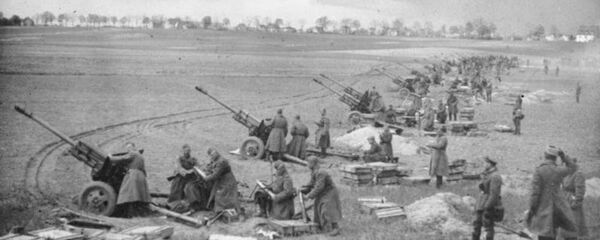However, the interview did not sit well with the censors who ordered the footage to be destroyed. Luckily, a copy of that interview was saved.
“The Hitlerites didn’t expect such stiff resistance on our part, and the deeper they moved into our territory, the harder we fought. By the time the enemy approached Moscow we were fighting to the bitter end,” Zhukov said.
He mentioned the heavy losses the Nazi invaders were suffering every day.
During the Battle of Moscow the fields outside Moscow were littered with the bodies of dead German soldiers.
“The number of tanks and warplanes they lost here simply boggles the mind! [Hitler] lost his very best fighters who were literally decimated by our forces,” Zhukov recalled.
Zhukov explained the Germans’ failure to take Moscow by the Soviet Command’s timely knowledge of exactly when and where the enemy was going to launch its main attack.
“When we determined that the Germans planned to advance on Volokolamsk, Istra and Klin, we fortified the approaches to these towns and established a strong line of defense, especially where it comes to artillery and anti-tank forces,” Zhukov noted.
The Battle of Moscow, fought in the fall of 1941 and winter of 1942, was the first glorious chapter in World War II for the Soviet Union. On both sides, the Battle of Moscow involved over 3 million people, 22,000 guns and mortars, about 2,000 tanks, and 2,000 warplanes.
The Soviet Army offered stiff resistance to dilute the German offensive, undermine enemy morale, and create all prerequisites for a decisive counteroffensive.
The Battle of Moscow dashed Adolf Hitler’s blitzkrieg aspirations and was the first major debacle the theretofore invincible Wehrmacht suffered in WWII.
Never miss a story again — sign up to our Telegram channel and we'll keep you up to speed!




